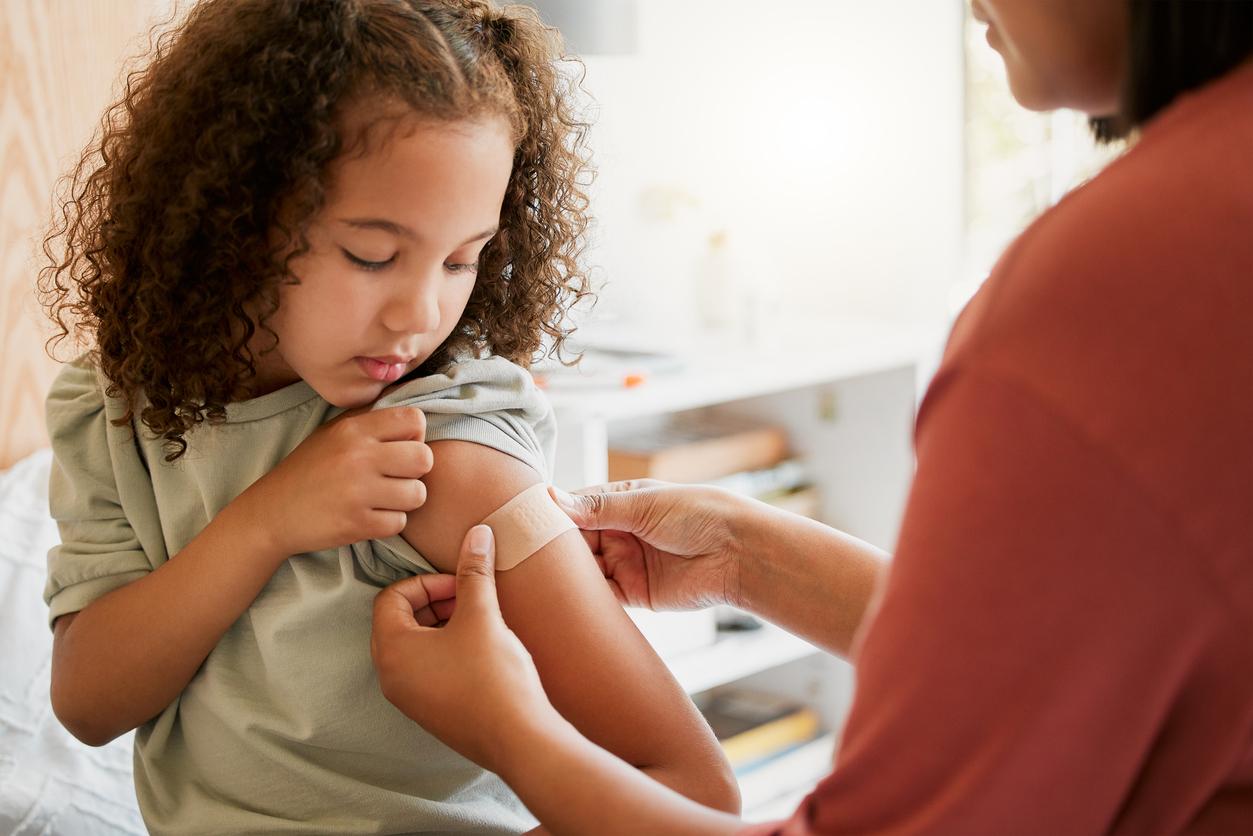The American Academy of Pediatrics (AAP) today reaffirmed its call for an end to nonmedical exemptions for routine childhood vaccinations.
In a revised policy statement published today, the AAP said that it continues to support medical exemptions from immunization when granted appropriately and believes such exemptions should be available to children. But it's concerned that the growth in nonmedical vaccine exemptions, and the variation in how different states implement nonmedical exemption policies, is leading to disparities in immunization coverage and schools that are less safe.
The statement, which updates a 2016 policy that was reaffirmed in 2022, comes amid rising rates of vaccine exemptions in the United States and the worst year for measles the country has seen since the disease was declared eliminated in 2000. Of the 1,319 confirmed US measles cases so far this year, 92% have been in individuals (primarily children) who are unvaccinated or have unknown vaccination status.
AAP argues that nonmedical vaccine exemptions "erode the safety of school environments" and limit the public health value of vaccine requirements for school attendance.
"Because medically recognized contraindications for specific individuals from specific vaccines exist, there continues to be a place for legitimate medical exemptions to immunization," the team of five AAP-affiliated physicians wrote. "However, exempting children for nonmedical reasons from immunizations is problematic for medical, public health, and ethical reasons and creates unnecessary risk to both individuals and communities."
Forty-five states allow nonmedical exemptions
The AAP said requiring proof of immunization as a condition for childcare and school attendance—as all 50 states, the District of Columbia, and Puerto Rico currently do—is an effective means of protecting communities from vaccine preventable diseases because it helps protect those who can't be vaccinated for one reason or another.
"Certain infants, children, and adolescents cannot safely receive certain vaccines because of age or specific health conditions, and some vaccinated individuals may not develop immunity despite appropriate immunization," the authors wrote. "When nearly all individuals for whom a vaccine is not contraindicated have been appropriately immunized, the risk of illness or spread of a contagious vaccine-preventable infectious agent to those who do not have the direct benefit of immunization is minimized."
Currently, all states and territories allow medical exemptions, which can be applied to children who have allergies to certain vaccine components or those who've had significant adverse reactions to vaccines or have underlying medical conditions such as immunosuppression. Nearly half of states have laws that distinguish between permanent and temporary contraindications, and five states (California, Connecticut, Maine, New York, and West Virginia) allow only medical exemptions.
Exempting children for nonmedical reasons from immunizations is problematic for medical, public health, and ethical reasons and creates unnecessary risk to both individuals and communities.
The AAP says that because only a small percentage of US children have medical conditions that prevent them from receiving specific vaccines, medical exemptions don't have a significant impact on overall immunization rates. The bigger concern is the 45 states that also allow religious exemptions from immunization requirements—15 of which also allow exemptions for personal beliefs and philosophical or conscientious objections.
The AAP notes that while none of the major world religions "include scriptural or doctrinal guidelines that preclude adherents from being vaccinated," religion-based perspectives on vaccination have developed independent of scriptural or doctrinal definitions. And some states that allow religious exemptions are using broad definitions of the term, enabling more people to attach a religious dimension to their stance and helping fuel a nationwide increase in vaccine exemptions.
"States that permit nonmedical exemptions have had steady increases in the number of exemptions over time, with the national rate of exemption gradually increasing as well, reaching 3% in the 2022–23 school year," the authors wrote. "Religious exemptions have increased for states that do not offer other types of nonmedical exemptions but have, through regulatory language, broadly defined religion for the purposes of obtaining vaccine exemption."
More recent data from the Centers for Disease Control and Prevention (CDC) show the national exemption rate has continued to rise, climbing to 3.3% in the 2023-24 school year. Nonmedical exemptions accounted for over 93% of all exemptions granted. At the same time, routine childhood vaccine uptake in US kindergarteners in 2023-24 fell to below 93%, down from 95% in 2019-20.
Legal, ethical considerations
The AAP acknowledges that there are a wide variety of legal and ethical considerations to consider, including religious liberty and parental authority, and that states are "rightly reticent" to enact policies that are perceived to interfere with either. The authors also note that school vaccine requirements can pose a dilemma for families who want the option of declining vaccines but depend on school services for their children.
But they cite a number of court rulings that have upheld school vaccine requirements, and argue that immunization conditions for school attendance, unlike vaccine mandates, offer a "reasonable strategy" for striking the balance between parental authority and the state's interest in protecting school communities.
"Fundamentally, policies that make immunization a uniform condition of school attendance and permit only medical exemptions are an equitable choice and strike the optimal balance between parental authority and public safety for all children," they wrote.

















